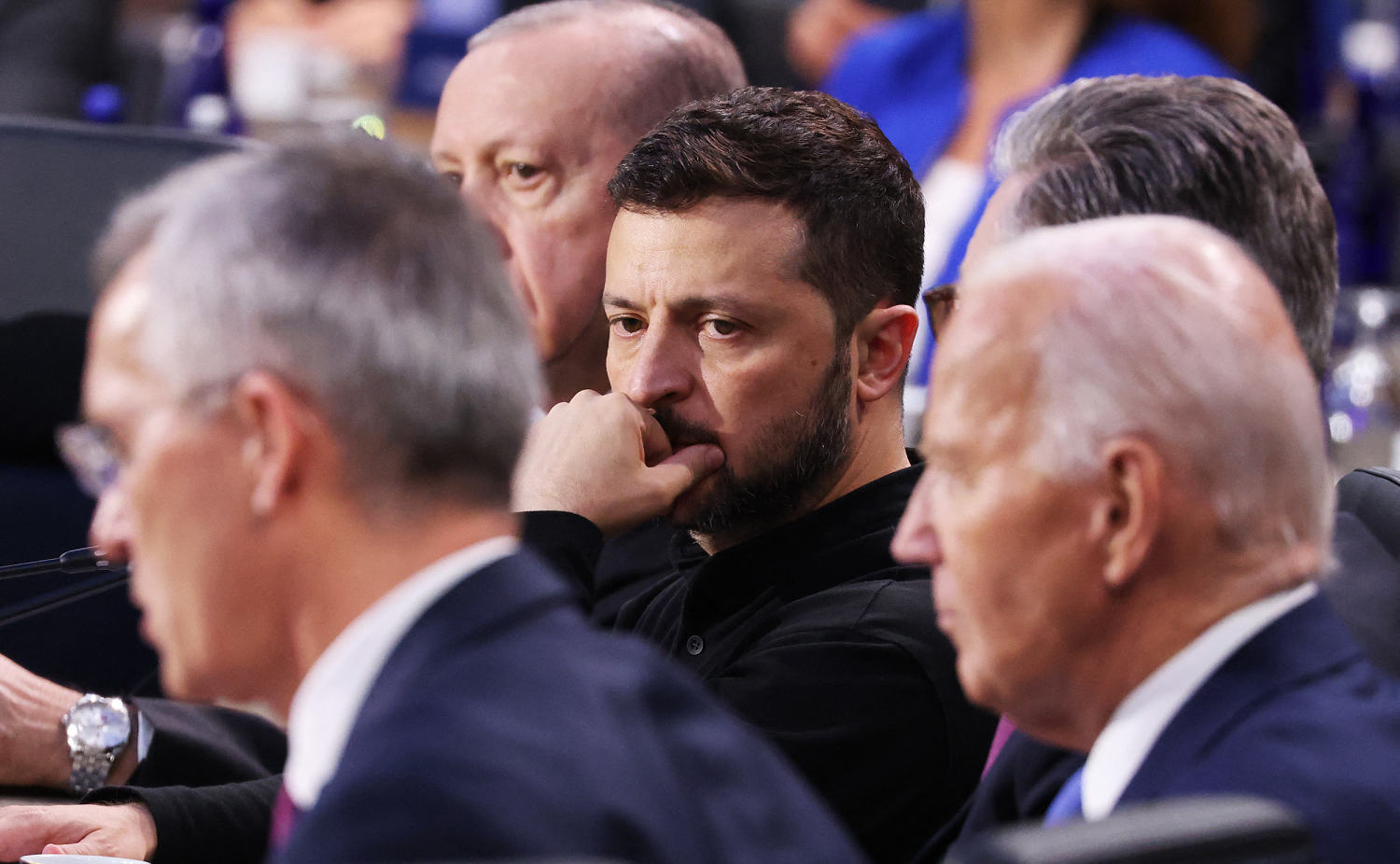All eyes are on America as an uncertain world awaits critical election result

LONDON — War in the Middle East and Europe. Rising far-right in Europe. Economic uncertainty. And even the climate emergency. Around the world, discussion of these crises invariably turns back to a common refrain: “Well, a lot depends who wins the United States presidential election.”
This week, the world is anxiously awaiting the answer.
The “leader of the free world” always holds a huge sway over the 7.9 billion people who don’t get a vote. But this time, former President Donald Trump and Vice President Kamala Harris are so diametrically opposed — in style, substance, policy and beyond — that the victor could shape global events for years, if not decades, to come.
“This is an extremely important election for the world,” said Thomas Shannon Jr., former U.S. undersecretary of state for political affairs, the third-highest-ranking role in the State Department. Principally, “because it comes at a time of debate within the American public about the purpose of American power in the world.”
A Harris administration “would be more predictable, and one in which both our adversaries and allies feel they have an understanding of what we might be doing,” said Shannon, a veteran career diplomat who has served senior, nonpolitical roles under presidents Trump, Barack Obama and George W. Bush.
“Trump’s approach would be more unpredictable — which would be unsettling” for both adversaries and allies, he added.
Friends, allies and foes
The feeling of anticipation is palpable in Washington’s great rival, Beijing.
The election “will have significant implications virtually for everyone in the world — for good or evil,” said Dong Wang, an international studies professor at Peking University.
Trump and Harris have “completely different competing visions of the global order,” said Wang, executive director at the university’s Institute for Global Cooperation and Understanding. Harris would bring “more continuity and predictability,” he said, “but we cannot assume she will be Biden 2.0. Whereas Trump would mean “more unpredictability for many countries in the world — for friends, allies and foes alike.”
Many in Beijing see peril in both candidates at a time when China hawkishness is about the only issue of bipartisan consensus in Washington.
Despite the sluggishness of China’s economy and America’s strong performance by comparison, the Asian giant is still forecast to overtake the U.S. economically at some point in the next two decades. And so influential Chinese observers see Trump as one who brings unwelcome chaos and unpredictability — as well as his beloved tariffs.
During his first term, he started a trade war with Beijing, imposing $360 billion in tariffs on Chinese goods. He promises to go further this time, vowing a flat tariff of at least 60% on anything coming in from China — threatening to hike these levies to 150% or 200% if China invades Taiwan, the self-ruled democracy that Beijing claims as its own.
“I wouldn’t have to” trigger those high tariffs, Trump told The Wall Street Journal last month, however, because Chinese President Xi Jinping “respects me and he knows I’m f—ing crazy.”
Like on many issues, of course, Trump has flip-flopped on Taiwan, suggesting it should have to pay for U.S. protection, and talking up his “very good relationship” with Xi.
Wang Yiwei, a professor of international relations at Renmin University of China, reflected on the disquiet these promises are currently stirring. “The whole world will be paying the price if Trump comes back, or even if Harris wins and actually continues with Trump’s policies,” he said.
Harris’ boss, President Joe Biden, has kept all of Trump’s first-term tariffs while adding some more of his own.
Like Biden, the vice president says she wants to make “sure America, not China, wins the competition for the 21st century.” She also wants to “de-risk” Washington’s relationship with Beijing. This jargon essentially means she wants to continue trading with China while restricting certain exports, such as technology that can be used for military purposes.




